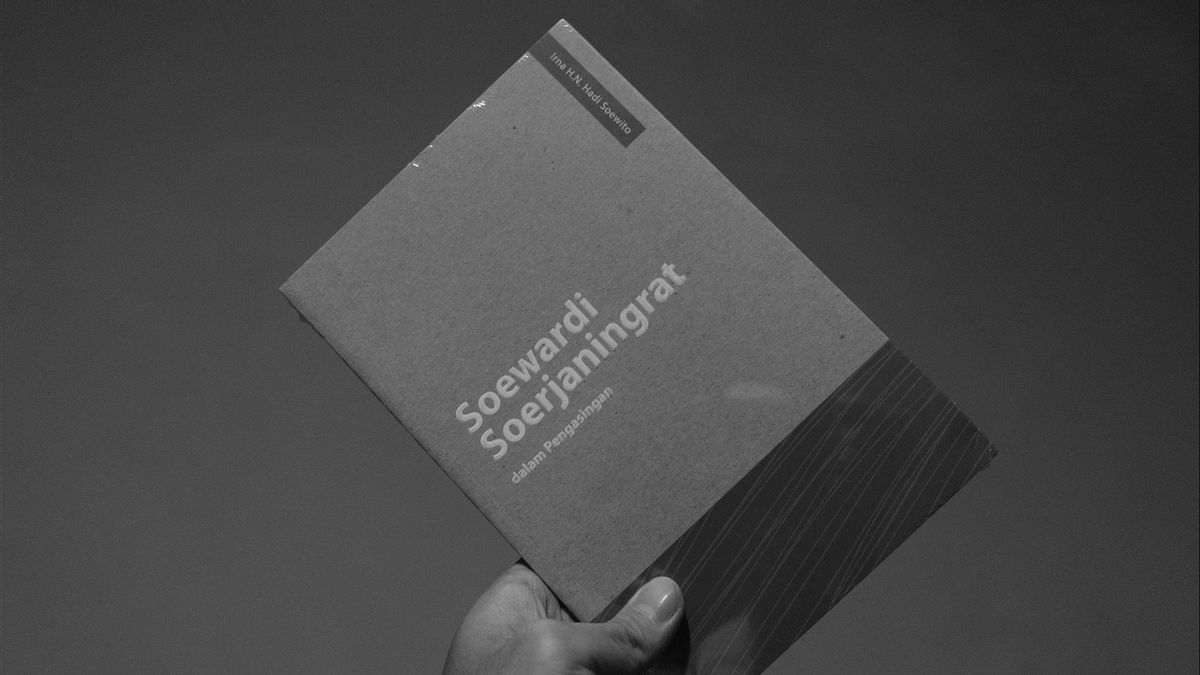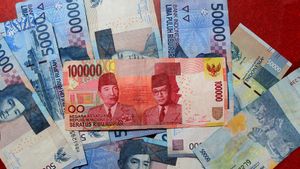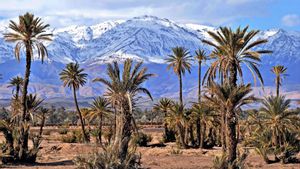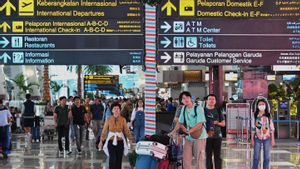JAKARTA - The life story of Raden Mas Soewardi Soerjaningrat, also known as Ki Hajar Dewantara, is interesting to read. This grandson of Paku Alam III is a person who causes Dutch headaches.
People know him as the Father of National Education. But, in fact he is good at all fields, including politics, journalism and culture.
His life story is recorded in a book entitled Soewardi Soerjaningrat dalam Pengasingan by Irna HN Hadi Soewito. From this 144-page book, many lessons can be learned from the story of him, when he was young, when he was in exile in the Netherlands, and when he returned to Indonesia.
Young Soewardi
By the author, young Soewardi is described as being used to playing with people who are not of the nobility. Little Soewardi was a hard-hearted and naughty person. His stubbornness is not used in trivial matters, but in things that need to be defended, such as bullying.
As a case in point, when a Dutch child interfered with a friend, he did not hesitate to come to the child. He also berated using fluent Dutch, so that a fight was inevitable.
At that time, it happened that he was defending a female figure named Soetartinah. It was through this incident that he first had to deal with the colonial police. And for the first time, the feeling of "childlike love" between Soewardi and Soerartinah appeared.
Growing up, Soewardi, who graduated from the Euroeesche Lagere School (SD level), then continued his education to School tot Opleiding van Indische Artsen (STOVIA), or what was known to the public as a Javanese medical school in Batavia. He did not finish his education there.
He chose to work, and one of the jobs he had done was to become a pharmacist. Unfortunately, he once mixed up the wrong medicine, and got him released. Later, this incident was discovered because Soewardi's time was spent writing in a newspaper.
The birth of the writing Als ik eens Nederlander was
From writing he finds serenity. In this world too, he knew Douwes Dekker and Tjiptomangonkusomo, and joined De Expres magazine. These were all which paved the way for him to build the Indische Partij political party.
"For him this magazine is a propaganda tool, which later, together with De Expres, became the pioneer of the birth of a political party called the Indische Partij. The party which aims to promote and develop the homeland, as well as prepare the Indies nation to stand on its own. Indie voor Indiers or Indies for the Indies, "wrote the book on page 8.
The article entitled Als ik eens Nederlander was or "if I was a Dutchman" made him exiled to the Netherlands. This paper contains criticism of the Dutch government's plans in 1913 to celebrate the 100th independence from French colonization. To make matters worse, the people of the Indies were forcibly charged for the celebration.
The 5,000 copies of the writings published by the Bumi Putera Committee are printed in two languages, Malay and Dutch. The contents of the writings were protesting against the Dutch government, that the Indies should not participate in celebrating the independence of a nation that was oppressing it.
"If I were a Dutch, I would not have celebrated the celebration in the country we were colonizing. First, we have to give independence to the people who were colonized, then then we will commemorate our own independence, ”said Soewardi at the end of Als ik eens Nederlander was's writing.
The writing was considered seditious. He was arrested and jailed. Several months later, he and his two colleagues (Douwes Dekker and Tjiptomangonkusomo) were exiled to the Netherlands. They do not get the cost of living there. Before it was decided to go to the Netherlands, he refused to be exiled to the island of Bangka.
Living in exile
Soewardi and his wife went to Dutch exile on a ship called Bulow, departing from the port of Tanjung Priok.
Arriving in the Netherlands, Soewardi's life was in dire straits. Many people were sympathetic and wanted to help him, but Soewardi refused. Soewardi chose to earn additional income by writing in a number of Dutch newspapers.
Soewardi's wife, Soetratinah, did not remain silent. He also looked for work and became a teacher at Frobel School (kindergarten level) in Weimaar, The Hague.
In addition to writing, Soewardi is also active in various forums in the Netherlands, including the discussions that are often held by Douwes Dekker at the Paleis Voor Volkvlijt (meeting hall in Amsterdam) every night.
Soewardi built a news agency, Indonesisch Persbureau (Indonesian Press Bureau). This was intended because many Dutch people did not understand the conditions in the Indies (the term for Indonesia). This company was also created to inform the realities of the Indies.
The Indonesisch Persbureau became the first national news agency, and from there the name Indonesia for the Dutch East Indies became known throughout Europe.
The news agency's activities are not only limited to journalism. In this place, Soewardi often held lectures, remarks, and art evenings. In the past, when people knew Soewardi, he was always excited, while in Holland he also tended to change.
"From the sharp strokes of a burning pen, it turned into a lake water that only rippled by the wind. He wrote about culture, humanity, agriculture, animal husbandry, and so on. Many articles about the homeland touch on people's lives in general," wrote the book Soewardi Soerjaningrat in Exile, page 64.
Even though he was busy working in the press sector, he also took the time to interact at Indische Vereeniging (Indies association) and attend lessons at Lager Onderwijs (teacher school). On June 12, 1915, he received a diploma called Akte bekwaamheid als Onderwijzer (diploma of teaching skills).
It was through this school that he immediately became familiar with the ideas of liberating education. Figures such as Rabindranath Tagore, Maria Montessori, and Freidrich Froebel became his inspiration during his studies. Soewardi also chose the path of education as a tactic in his struggle, which he had previously been passionate about voicing aspirations through political channels.
Go back home
After 5 years in exile, Soewardi returned to his homeland. Returning, he interpreted as returning to the real battlefield. He headed to his homeland with a ship named Rindjani, bringing with him a large suitcase and two bookcases.
This journey took 51 one day. Floating across the Atlantic Ocean. On 15 September 1919, Soewardi set foot in the port of Tanjung Priok, Batavia.
Several years later, he began to actively develop Taman Siswa. He also changed his name to Ki Hajar Dewantara. The name is now known as the Father of National Education.
Book Title: Soewardi Soerjaningrat in Exile
Author: Irna HN Hadi Soewito
First Published: 1985
Publisher: KPG (Popular Gramedia Library) together with Balai Pustaka
Number of Pages: 144
The English, Chinese, Japanese, Arabic, and French versions are automatically generated by the AI. So there may still be inaccuracies in translating, please always see Indonesian as our main language. (system supported by DigitalSiber.id)













